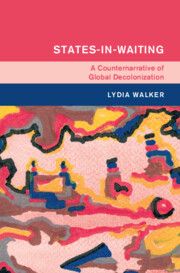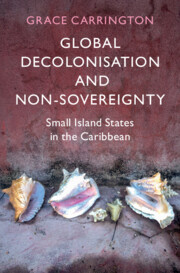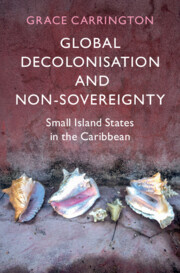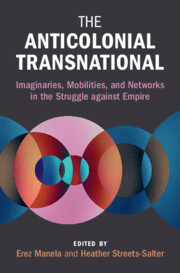States-in-Waiting
After the Second World War, national self-determination became a recognized international norm, yet it only extended to former colonies. Groups within postcolonial states that made alternative sovereign claims were disregarded or actively suppressed. Showcasing their contested histories, Lydia Walker offers a powerful counternarrative of global decolonization, highlighting little-known regions, marginalized individuals, and their hidden (or lost) archives. She depicts the personal connections that linked disparate nationalist struggles across the globe through advocacy networks, demonstrating that these advocates had their own agendas and allegiances, which, she argues, could undermine the autonomy of the claimants they supported. By foregrounding particular nationalist movements in South Asia and Southern Africa and their transnational advocacy networks, States-in-Waiting illuminates the un-endings of decolonization—the unfinished and improvised ways that the state-centric international system replaced empire, which left certain claims of sovereignty perpetually awaiting recognition. This title is also available as Open Access on Cambridge Core.
- Presents a counternarrative of global decolonization that showcases those who did not become independent
- Interrogates the limits of national liberation by removing an analytical bias towards 'successes'
- Utilizes an innovative, connective, and transnational non-state archive drawn from personal and organizational records
Reviews & endorsements
'In analyzing the history of 'decolonization after decolonization,' States-in-Waiting invites a salutary reconsideration of seemingly self-evident terms like 'decolonization,' 'non-state actors,' and even 'states.' The book's subjects range around the world and include some of the most interesting, if too-often-neglected, causes and characters of the late 20th century.' David C. Engerman, Yale University
'Deeply researched and written with clarity, States-in-Waiting reconstructs the transnational advocacy networks and unexpected alliances through which nationalists groups sought to realize their vision of self-determination. Focusing on the delayed and denied projects of national independence, Lydia Walker's study is a welcome intervention that recasts the constraints, unevenness, and failures of decolonization.' Adom Getachew, University of Chicago
'States-in-Waiting is a fascinating account of an overlooked dimension of decolonization after the Second World War. Walker turns the spotlight on nationalist claimants within postcolonial states that sought international recognition for independent statehood and the activities of transnational advocates for their cause. Starting with the nationalist movement in postcolonial India for an independent Nagaland, this twinned history of claims-making and advocacy takes us to Zambia, Congo, Namibia. Along the way we encounter forgotten individuals of the age of decolonization-AJ Muste, Jayaprakash Narayan, Michael Scott-and institutions such as the World Peace Brigade. This brilliantly researched, carefully argued and readable book breaks new ground in the connected history of decolonization in Asia and Africa.' Srinath Raghavan, Ashoka University
'Historians of decolonization tend to present the moment of independence as the culmination of nationalist struggles, and the achievement of political sovereignty as a triumph. But for many ethnic, regional, religious, linguistic, and other minority groups, decolonization was a tragedy which foreclosed their political futures, leaving them as perpetual 'states-in-waiting.' Lydia Walker's fine new book seeks to theorize and recover the stories of some of these groups, highlighting 'little-known regions, marginalized individuals, hidden or lost archives,' and the loose transnational advocacy networks which connected them.' Brad Simpson, Diplomatic History
'… will further enrich, and complicate, our assessment of the historical possibilities that decolonization opened and foreclosed. … historically minded international lawyers will find this book greatly enjoyable and will nod at the idea that we cannot sharply distinguish between imperial orderings of the world, and post-colonial orderings. And we certainly benefit from learning that the transition from the world of European empires to a world of largely independent states was midwifed by a universe of transnational actors whose own ideological proclivities, and political priorities, do not easily map onto the lofty rhetoric of liberation that we usually associate with decolonization.' Sannoy Das, American Journal of International Law
Product details
No date availableAdobe eBook Reader
9781009305808
0 pages
Table of Contents
- Introduction: Nation-Making
- Part I. Nationalist Claims-Making:
- 1. Sovereignty in the hills
- 2. Advocates of not-quite independence
- Part II. International Advocacy:
- 3. The Anti-Algiers
- 4. The spectre of Katanga
- 5. Capital and claims-making
- Part III. The Boundaries of Decolonization:
- 6. Marching into the great wall of state
- 7. Postcolonial imperialism
- Conclusion
- Bibliography
- Index.










